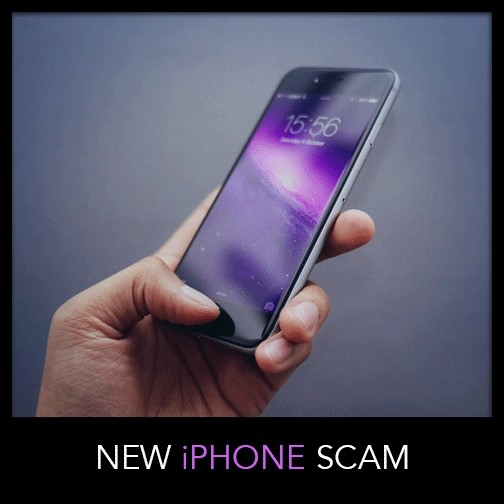New iPhone Scam Hits Australia:
This is a public announcement: A new iPhone scam has emerged this week, that targets all iPhone users across the globe in what is becoming one of the most dangerous scams on the device yet.
The scam is simple, yet highly effective on those with an untrained eye – many of today’s up and coming tech whizzes will be able to tell straight away that it’s a scam, and many of our followers too, who have read our previous articles on safeguarding yourselves from scams and fraud. However, a great many more of you may not know the dangers, and so here we are to share them with you.
The scam taps into your trust in the Apple Inc. brand – iPhone users receive a message, seemingly sent from the company, informing them that the details of their iCloud accounts need to be updated, with the message containing a link that directs them “to the Apple website.”
The link, however, directs those who click on it to a mirror site; a site that is designed to look exactly like Apple’s official website. From there, users are prompted to type in their iCloud username and password, following which the page informs them that their accounts have been temporarily blocked due to missing information. From there, a new page loads requesting that users input their bank account or credit card details… of course.
HOW TO SPOT IF THE MESSAGE IS A FAKE
Once you’ve clicked on the link in the original message, you’ll be directed to that fake Apple site. It’s here that the scammers didn’t quite get everything right…
In most cases, the website’s address is different from Apple’s real address, https://www.Apple.com/ ; it either reads as an IP address (just a series of numbers) or one of a range of fake Apple-like web addresses. Take a look at some of the examples below… all of these addresses, and many more like it are definitely not worth a visit:
All of the above addresses with or without the secure “https” prefix and ending with .com, .com.au, .co.uk or any others are more than likely to end up costing you a fair bit more than just your iCloud login details.
- http://www.apple.com or http://www.apple.net or http://www.apple.co.uk or http://www.apple.com.au – all of these addresses are missing the secure SSL certificate as you can see from the lack of an “s” in the “https” prefix. This shows an unsecure connection.
Be careful and stay alert.
Should you, or anyone you know, have already fallen victim to a scam or act of fraud, or perhaps you fear that you’re dangerously close to becoming a victim, please don’t hesitate to get in touch with Precise Investigation. Our trained operatives are more than capable of guiding you through a number of protective measures and they’re ready to lend a helping hand if you need it. In some cases, where victims have already parted with their cash, Precise Investigation can also work with you to recover your losses, depending on the particular scam and its point of origin.
Call Precise Investigation today on 1300 856 011 for a professional private investigation service.
For more information regarding our fraud-related investigation services, please click here.
We have operatives stationed across the whole of Australia, with quick and easy access to Melbourne, Sydney, Perth, Adelaide, Hobart, Brisbane and even the more remote reaches of the country. So, wherever you are and no matter the issues you’re facing, rest assured that one of our operatives, or a team thereof, is ready and available to assist you through your troubles. Get in touch with us today to regain some real peace of mind.






















